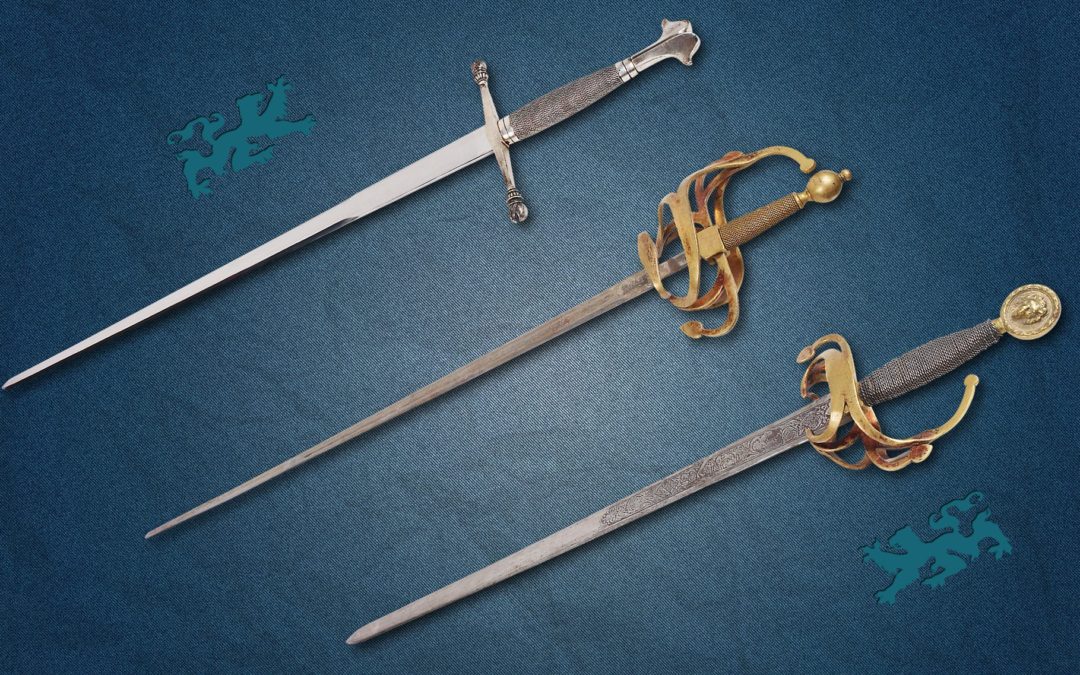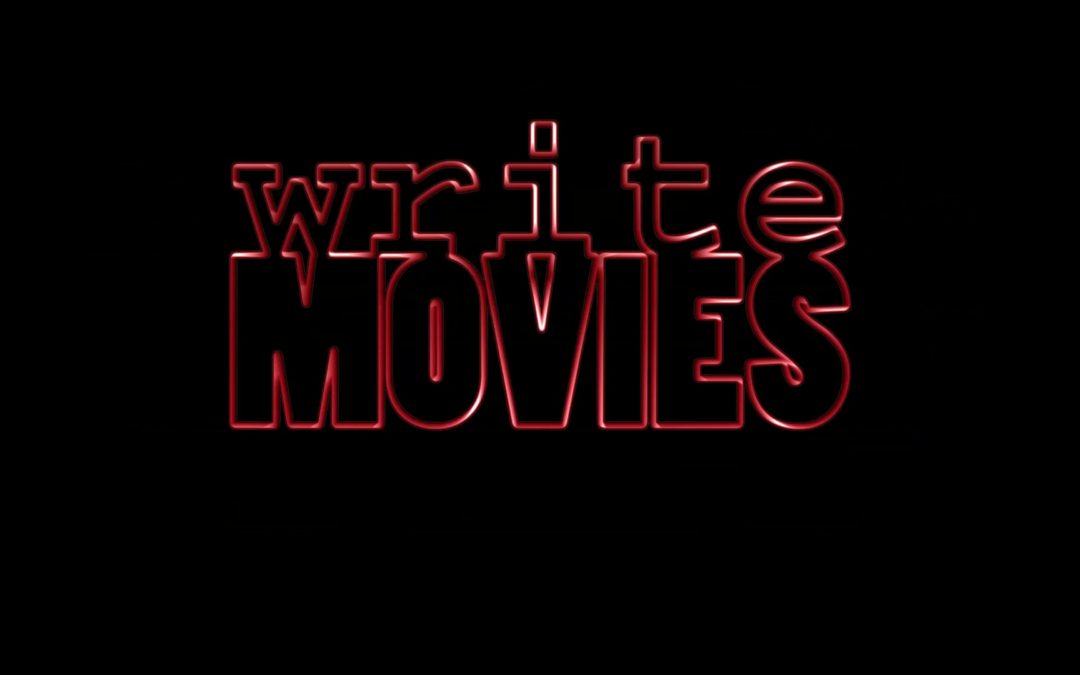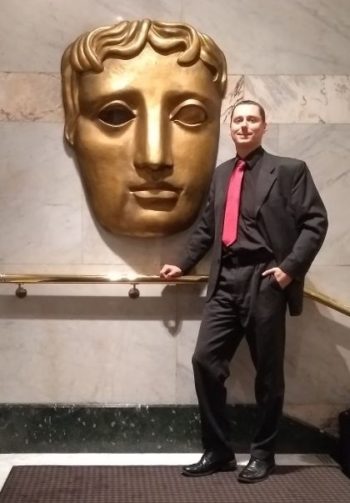
by John | Nov 26, 2018 | Ian Kennedy, Updates, Writing Insights
Feature films tend to get most of the glory among filmmakers, but that doesn’t mean we should ignore short film as a medium! In a new series of Insights articles, Ian Kennedy looks at the benefits of writing in this format.
There’s a reason there’s not just one but two categories for shorts at the Oscars: one for live-action and another for animated. They can be a great way of telling stories that a lot of filmmakers overlook – and that includes writers!
So why write a script for a short film? Why get one made? Well, there are actually quite a few good reasons…
- You’ve got an idea for story that doesn’t suit feature length – sometimes, even the best concept can’t be spun out into a longer screenplay! That doesn’t have to a negative, though. Use the opportunity to tell the story in short form instead.
- To improve your skills by writing under constraint. All writing is done under constraint of some kind – of format, style, etc. – but the additional restrictions of length and budget with short film can be a great chance to prove yourself. Learning to write under constraint can actually be a great way to improve your writing!
- As proof of concept for a feature film. Making feature films is an expensive business, so why not show how well your idea works by making a short based on the same idea?
- To get a production credit. Getting a script produced can take hard work, but if you’ve already got a track record in short films, it can look great on your writing CV and give producer’s faith in your abilities.
- As a personal project – just because you love your idea or are passionate about filmmaking! Be careful, though; if you’re making a short film for personal reasons, make sure that everyone on the production knows what your motives are.
Making a short film brings all sorts of challenges of its own. You’ll still need a unique concept, a well-structured story, and characters that audiences can fall in love with – but you’ve got to get it all into a much smaller space! That’s why it can be such a great test of your skills as a storyteller.
Whatever your reasons for making a short film, make sure you know exactly what they are before you begin, whether you want to use it to take the next step in your career or just because you’ve got a story you’re desperate to tell!
Take a look at our other Writing Insights articles here for great hints and tips on crafting your scripts!

by John | Nov 23, 2018 | Updates
In readiness for the eventual arrival of the final season, Ian Kennedy subjects himself to the whole thing again. Can anyone endure Ned’s honor, Stannis, the Red Wedding, and – worst of all – Arya’s unending journey from ‘annoying’ to ‘a different kind of annoying’, all over again? Or will the quality of the writing conquer all foes once more? Spoiler central here, if you hadn’t guessed… but in euphemisms that would make Tyrion blush, most of the time.
“It’s all very interesting, there’s lots of intrigue, but nothing’s really happened yet.” That’s what I said to my parents about GoT season one, several episodes in. So after the opening introductions, will things will start to drag for me second time around as I watch The Kingsroad?
Just two scenes in, I’ve already got a lot less to say. Dany’s ordeal in a savage land and marriage continues, and Jorah establishes himself as a support for her, a Westeros knight once exiled by Ned Stark for handing poachers over to slavers. Tyrion’s fateful feud with Joffrey is established in a suitably hung-over, throwaway incident. Cersei reveals she lost her first-born child, which I’d totally forgotten about, and this does put a different spin on her surviving children who stand as heirs to the throne – because only this one was black-haired, like all previous Baratheons. Jon presents Arya with a blade which she names ‘Needle’, which I’d thought was Robb’s doing. All vaguely interesting to fans, I guess, and still perfectly well-written.
“I have no choice,” Ned says. “That’s what men always say when honor calls,” complains his wife Catelyn – how true of the world she’s lived in till now, but a dangerously naïve view to take to the human snake-pit that is King’s Landing. Dialogue in the series rarely fails to be insightful as well as character-building.
I could recount further details, it’s all well done, but I’d just be retelling.
Afterwards, for the first time I explore the DVD extras I’ve been ignoring all these years. As much as anything, I’m relieved to see how to spell the names properly – no, I haven’t read the books. Amid the character notes, I learn that Eddard (Ned) ‘was not always meant to be Lord of Winterfell, but when his father and elder brother were brutally executed by Mad King Aerys, he was thrust into a leadership role and did his duty’. Well, as they say, what goes around… and yes, this bit of backstory is yet another neat bit of forward planning in the series, from long before the start. You really do feel like everything is part of a plan, which yields some wonderfully satisfying storytelling throughout.
A bit lower down the list of Stark characters, I learn about the long-dead Rickard Stark – which, if I’d bothered to read first time around, would have helped seed a much later revelation which felt a bit disconnected on its own. Among the other deceased Stark backstories (deceased Starks are something to get used to, I guess) there’s more interesting stuff about Catelyn and Littlefinger, a reminder that Theon is really a Stark prisoner due to his father’s failed rebellion years ago, the origins of the Baratheons as a bastard offshoot of the Targaryens 300 years ago (this series loves bastards) and Littlefinger’s nickname.
The seeds of future carnage really have been sown since long before the start of this series – salute to the author, George RR Martin. There’s useful backstory on Jorah and others here (including several who don’t even feature in season one), and Westorosi locations information, but finally on the ‘Characters’ extras, I can’t resist quoting the wonderful description of Bronn as ‘A sellsword of considerable prowess, flexible morality, and reasonable rates’.
So maybe I should have been a bigger geek for this show all along – knowing all this stuff actually would have made the stories even more involving. Of course, geeks are an important part of the audience of a fantasy show like this, but its ability to reach far beyond that is what has marked GoT out. Thankfully you don’t need to know any of the backstory to enjoy what’s in front of you and feel deeply involved. Good work. But it’s midnight and midweek now as I delve ever deeper, so a guy’s gotta quit sometime…
Playback rating 4/5
If you liked reading Ian’s take on The Kingsroad, have a look at his thoughts on Episode One: Winter is Coming by clicking here!

by John | Nov 19, 2018 | Industry News, Updates
Last week, the world of screenwriting lost a legend. William Goldman, who won two Oscars for BUTCH CASSIDY AND THE SUNDANCE KID and ALL THE PRESIDENT’S MEN, died on 16 November at the age of 87. Now, WriteMovies takes a look at his legacy and what we can learn from it…
If there’s one thing that it’s easy to agree on, it’s that William Goldman was a phenomenal writer. His incredible wit made his films infinitely quotable, and no more so than THE PRINCESS BRIDE, which was based upon his own book of the same name. In fact, his talent with words was so great that one of the most memorable lines in the film is a single word: “Inconceivable!” (Although, immediately followed by the remark: “You keep using that word. I do not think it means what you think it means.”)
But wit alone isn’t enough to make a great story. Throughout his career, William Goldman showed a profound understanding of what stories are really about; THE PRINCESS BRIDE gives us everything we could possibly want from an adventure film, with romance, action, dashing heroes, evil villains, and daring feats of bravery. Yet it also defies our expectations enough to give us something new. It feels simultaneously like something very familiar and like something we’ve never seen before.
This is a kind of balance that it’s hard to pull off, but you can see it again in BUTCH CASSIDY AND THE SUNDANCE KID. When the script was first written, only one studio showed any interest, and even then they wanted it changed so that the main characters wouldn’t flee to South America. After all, the heroes in Westerns at the time didn’t flee – no matter what the real Butch and Sundance did! In the end, it survived in the script, as did plenty of other genre-defying elements, most notably the famous bicycle-riding scene set to the song “Raindrops Keep Fallin’ on My Head“.
William Goldman wasn’t just great with words, he was great with stories too. He understood structure, character, pacing, tone, and all the other things that keep an audience captivated – and then he strung them all together with wit and charm. In his own words:
“Screenplays are structure, and that’s all they are. The quality of writing—which is crucial in almost every other form of literature—is not what makes a screenplay work. Structure isn’t anything else but telling the story, starting as late as possible, starting each scene as late as possible. You don’t want to begin with “Once upon a time,” because the audience gets antsy.”
The stories that William Goldman gave us will probably last as long as film itself. His book “Adventures in the Screen Trade” is a fantastic way to learn from the master himself – and after all, what could be a better tribute to him than giving it a read?
The world of film lost another great last week with the death of comic book legend Stan Lee. You can read our tribute to him by clicking here.

by John | Oct 29, 2018 | Success Stories, Updates, WriteMovies News
We’ve been hard at work lately having pitching scripts to industry, having pitch meetings with producers and distributors about our many projects! Alex and Ian had a productive meeting at BAFTA recently, discussing the slate and future opportunities. So, what have we been up to? Let’s take a look…
We’ve also recently had pitch meetings with many companies including Film4 and several of our winners’ projects have been going from strength to strength!
We guarantee pitching to industry for the top three scripts from our competition – so enter our Winter 2019 Screenwriting Contest today from just $44, and you can follow in the footsteps of our past winners and get your script out there!

by John | Oct 26, 2018 | Industry News, Updates
Script Sales from September 2018
Script Pipeline have been reporting on script sales from September 2018 – and although sales might be light this month, there are some interesting projects to take note of.
- Halle Berry will be taking on her directorial debut with BRUISED, in which she will also star. We’ve had countless boxing movies over the years, but apart from WARRIOR, Mixed Martial Arts hasn’t yet had its day at the movies. Perhaps now is the time for it to step into the ring?
- THE WILD BUNCH is getting a remake, and it looks like Mel Gibson will be the man behind it. This will be his first feature since 2016’s HACKSAW RIDGE – and shows the continuing trend of remakes and reboots in Hollywood right now.
- Whatever you thought of Rian Johnson’s efforts with STAR WARS, he’s soldiering on with his next picture. KNIVES OUT is a modern murder-mystery with Daniel Craig, Chris Evans, and, as most recently reported by Variety, Jamie Lee Curtis.
Don’t forget, knowing what’s selling right now is important for any writer who wants the best chance of getting their work produced – so read the full report on script sales from September 2018 by clicking here.
And don’t waste the chance to get our professional feedback on your work either using our script report services. They’re discounted throughout our Winter 2019 Contest, and you get free entry to the competition when you commission one, too!

by John | Oct 22, 2018 | Updates
In readiness for the eventual arrival of the final season, Ian Kennedy subjects himself to the whole thing again. Can anyone endure Ned’s honor, Stannis, the Red Wedding, and – worst of all – Arya’s unending journey from ‘annoying’ to ‘a different kind of annoying’, all over again? Or will the quality of the writing conquer all foes once more? Spoiler central here, if you hadn’t guessed… but in euphemisms that would make Tyrion blush, most of the time.
In honor of Tyrion, it’s hard not to open a bottle of red wine. There will be much hardship ahead to endure. Especially with an hour of reintroductions to get through first.
Now, when I tell you that one of the main characters of a story will be a dwarf, you already know it’s in one of two genres. Which is crazy, since people of that stature can turn up in any other context. Why are you already assuming the story I’m talking about must be a fantasy or comedy? But, such is the power of genre expectations. Or maybe stereotypes.
So yes, Thrones is a fantasy – though the society it reveals plays out like a twisted version of medieval Europe, it has some important extra elements, like ‘bloodmagic’. And, by giving us a character who people could describe as a dwarf (he’s usually given other epithets instead, like Imp and Half-Man), it’s meeting some of our expectations of the fantasy genre. But it’s what the series does with tropes like this which is fascinating. Sure, we’re used to dwarf warriors in Lord of the Rings and dwarf magicians in Harry Potter… I could go on. But how about an alcoholic, wise, witty, rich, womanising one? That’s an individual, not a stereotype. Very quickly, we learn to view Tyrion as an individual – a person, not a type. The result is some powerful stereotype-busting – I’d been told to expect to spot his American accent in the early episodes, but I didn’t, reaffirming my conviction that Peter Dinklage is just a great actor, end of.

Hadrian’s Wall – not quite as big as the one in Game of Thrones…
Anyway, to the series itself. The first sequence, a Night’s Watch foray beyond the Wall, quickly establishes that it’s grim up North, and even worse North of the Wall. (Speaking of which, anyone else think the geography of Westeros in that vast title sequence is just an exaggerated map of medieval Britain, with the Wall standing for Hadrian’s Wall, Winterfell for York (Viking capital of the Danelaw), King’s Landing as London, etc? Sensibly, and vividly, we’re introduced to the series’ monstrous zombies straight away; if the White Walkers were introduced later, it’d feel like a cheap trick to heighten the stakes. Introducing them here – and then saying they haven’t been seen for thousands of years – shows that from the outset, the world of all these characters has taken a decisive change that puts everything in danger. If anything, the rise of the White Walkers across the coming series is too slow and occasional in the show, but we have plenty else to keep us occupied till they finally get to flex their muscles.
Next we’re introduced to the Starks, the family who are initially at the heart of the series, executing their usual dourly dutiful natures from the start, when patriarch Ned executes the deserter who escaped the White Walker before – not much of a reward for surviving the opening sequence, and a tough introduction to the character who is the moral heart of the coming episodes, but this sequence is intended to show the brutal justice of the world we’re entering: even the good guys accept their part in that. “The man who passes the sentence should swing the sword”, Ned tells Bran, his 10-year old son, who he forces to watch the execution. Next, more casual gore and death, as the Starks then discover a dead direwolf, resulting in her brood of orphan cubs being given to the Stark children – a nice motif established for later, when they will come to be closely associated with their adult direwolves (though, as in other respects, they are unsentimentally handled within the story from an early stage – one is already unjustly killed within a few episodes).
In King’s Landing, we briefly meet Lannisters Cersei and her brother Jaime discussing the suspiciously-deceased ‘Hand of the King’, but this is just setup for the arrival of the King – Robert Baratheon – to Winterfell, where he will ask his old pal Ned to take over as ‘Hand’ in the capital. Ned’s been avoiding King’s Landing for 9 years – and probably since his best friend Robert took the throne – and I’m keen to explore my theory that if Ned had accepted or taken the throne back when he and Robert deposed the ‘Mad King’, all of the turmoil and decimation we see in the series might have been avoided. Now, Robert (hardly as good as king as he was as soldier) tells Ned to rule so that he can continue to drink and whore himself to an early grave.
Another character on the same track is Cersei and Jaime’s undersized brother Tyrion. We’re used to seeing dwarves in this genre – but not as playboys. With Tyrion we meet the first naked woman of the series – must be some kind of distinction – and the next follows moments later when we meet Daenerys, a vital powerful character, yet who is stripped naked in her very first scene as her brother (the heir of the previous, murdered king of Westeros) readies her for a strategic marriage to a ‘savage’ king across the English Channel (sorry, Narrow Sea). Game of Thrones likes to get its women naked first, and give them their dignity later. Dany’s brother renders this starkly (no pun intended – oh, who am I kidding), stating that he’d let the entire Dothraki army and their horses violate her in order for him to return to Westeros as king. She is powerless at this point is – sorry, I’m trying to avoid saying ‘stark’ again – and this sets up her journey to the top well by placing her firmly in the opposite situation and ensuring that she is the person within this savage realm who we empathize with from the start.
Back in Winterfell, Jon Snow trains to go to the Wall rather than join the revels, proving that in spite of his ‘bastard’ origins, he’s inherited the Starks’ sense of duty and honor, and Tyrion tells him in solidarity that ‘dwarves are all bastards in their father’s eyes’ too. Ned gets news that the last Hand may have been murdered by the Lannisters, amplifying his dilemma about Robert’s request.
Dany’s wedding goes to plan, in that being stripped again and subjected by her new husband was definitely part of the plan, from the men’s point of view. Her reward is that she is presented with dragon’s eggs, which are thought to be petrified but will nonetheless come to define her later. All in all I’m impressed with the amount of information and motifs that are embedded in the first episode – as ever, the series juggles a big cast of characters while giving you just enough to recognize them all by. (See my Mini-Masterclass with the Game of Thrones personal identities challenge, to find out how this works.)
Finally, Bran stumbles upon a scene of you-know-what between siblings Cersei and Jaime (a queen, no less, shown robbed of her dignity, clothes and honor this time), bringing about Bran’s fateful accident. Finally we have a moment of action, and a good surprise plot twist to explain the rest of the intrigues we’ve discovered in the episode. This is also the first moment of action since the first sequence, just when I was just thinking this must be the only episode where none of the main characters have any.
The binding agent, the central question, that joins all the characters and storylines in THRONES is ‘who rules Westeros’. We’re not following the farmers or hilltribes. The series knows its central question, and sticks to it throughout, in spite of the huge cast, and never falls more than one or two removes away.
All in all, I wasn’t totally hooked by this episode second time round, but I felt the same about the first Harry Potter movie, even though both do a great job of introducing the fantasy worlds of their stories. Once you’re beyond that world-building, HP1 doesn’t have much more to offer you – but with its pincer-like moments of dialogue and brutalism, GoT’s first episode still does.
Playback rating: 4/5

by John | Oct 19, 2018 | Highlights, Interviews, Updates
In Part One of our exclusive article in conversation with Steven Knight, the writer-director spoke about how he began his career and about the rise of TV drama. Now, in Part Two, we find out about some of his influences and future plans…
Steven explained that PEAKY BLINDERS is based on stories of his parents and uncles, many of which he heard while around his blacksmith father while he was young. Once the BBC took an interest, things moved quickly. With series 1 complete, Steven was looking at potentially making 4 or 5 series of PEAKY BLINDERS.
PEAKY BLINDERS uses some CGI, but mostly uses derelict locations that aren’t about to be knocked down (one key location is the street where Ringo Starr was born!). There was resistance to setting PEAKY BLINDERS in Birmingham (UK) because of the unglamorous accent, but Knight insisted on retaining that authenticity – he believed that we should be telling our own stories of places like Birmingham.
The basic premise of LOCKE (starring Tom Hardy) was a journey from Birmingham to London, where someone starts out with everything and ends up with nothing – exploring how that could happen. If the cost is low enough, you can get creative freedom to run a project your way. LOCKE knocked CAPTAIN AMERICA off number 1 in terms of revenue per screen! It was on vastly less screens of course, but that was still very promising. Knight was determined that the character in that film should be the most ordinary person possible.
He explained that you have to write a three page outline for studios, however unlikely the script was to end up that way. Knight prefers not knowing where a story is gonna go. He writes, then goes back to the start every day and works through from there.
Knight has accidentally become the poster-boy for Birmingham’s drives to move to the next level in its drive to become a major player in global culture. He intends to build a major sound stage in Birmingham as London’s major studios are fully booked, with a ‘halo effect’ of businesses based around it, and from this to also create a scene where live theatre can lead to movies being made.
Ian Kennedy’s conversation with Steven Knight turned out lots of interesting information about the inner working of the industry. If you haven’t read it yet, why not take a look at Part One by clicking here?









